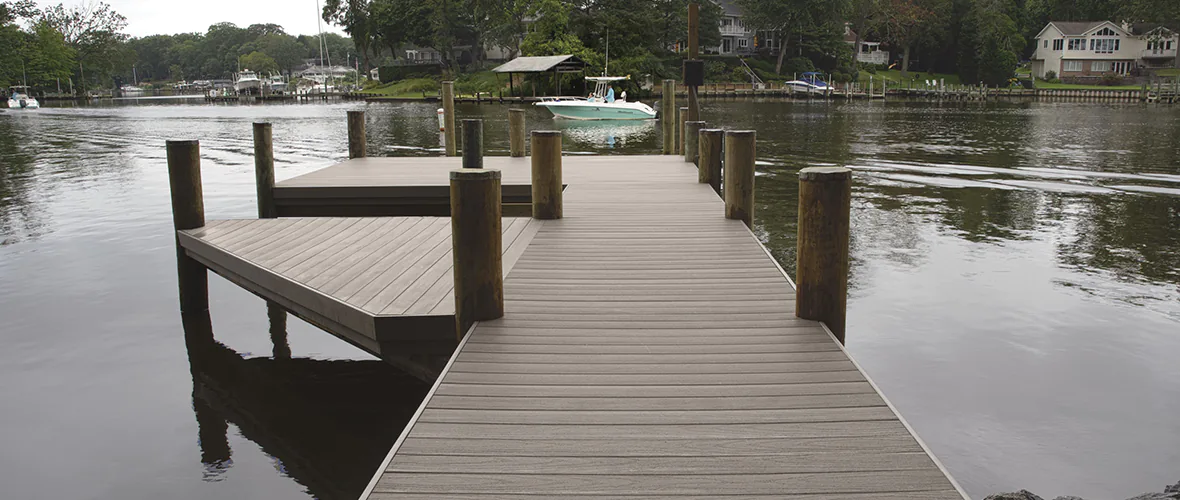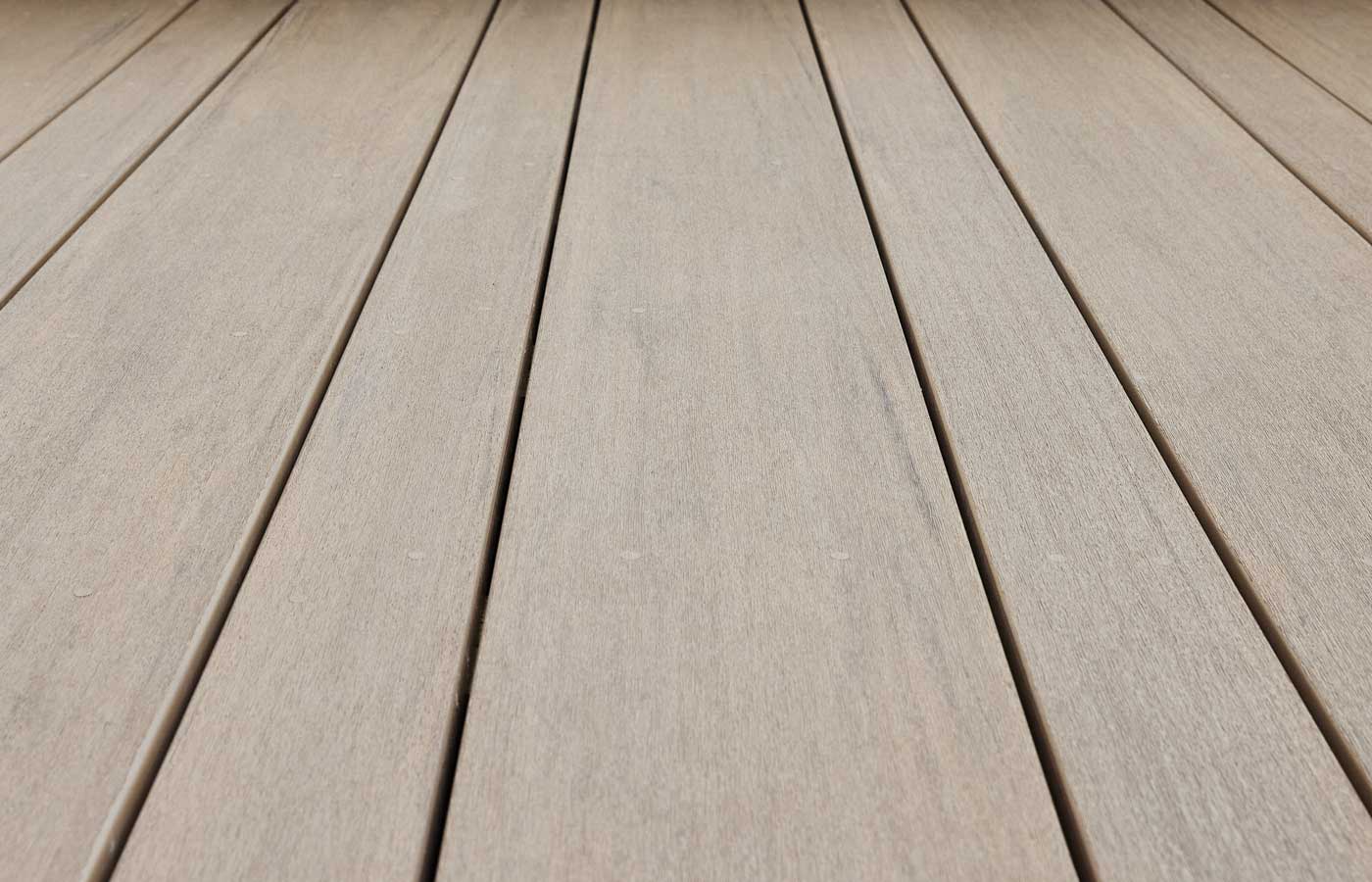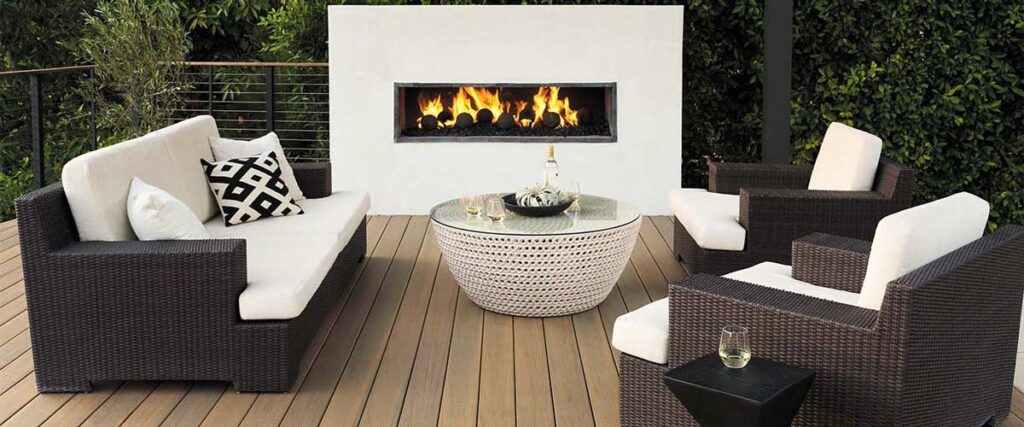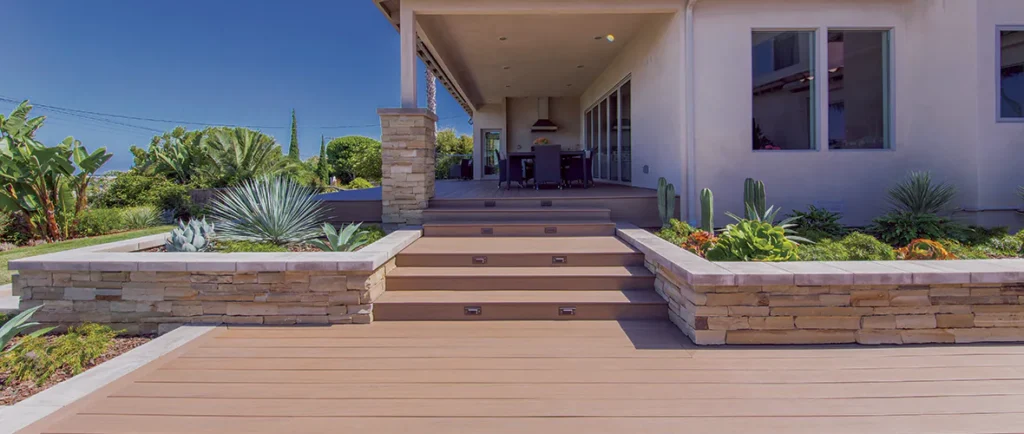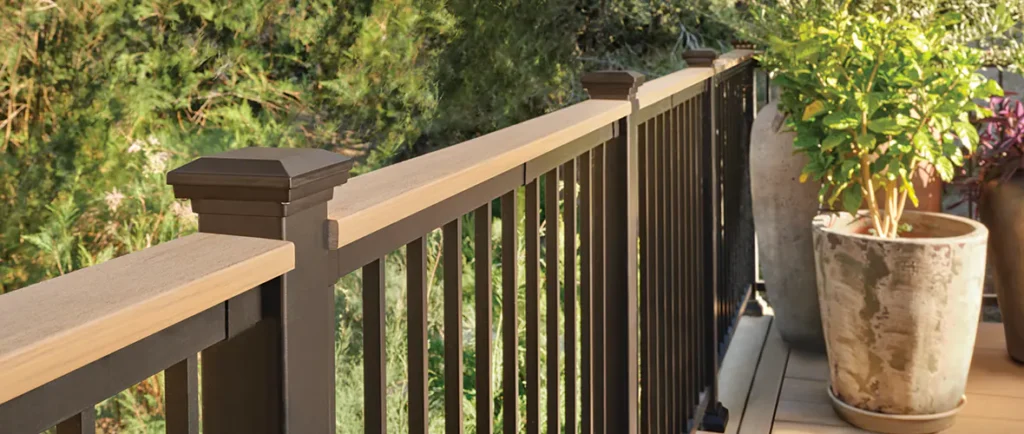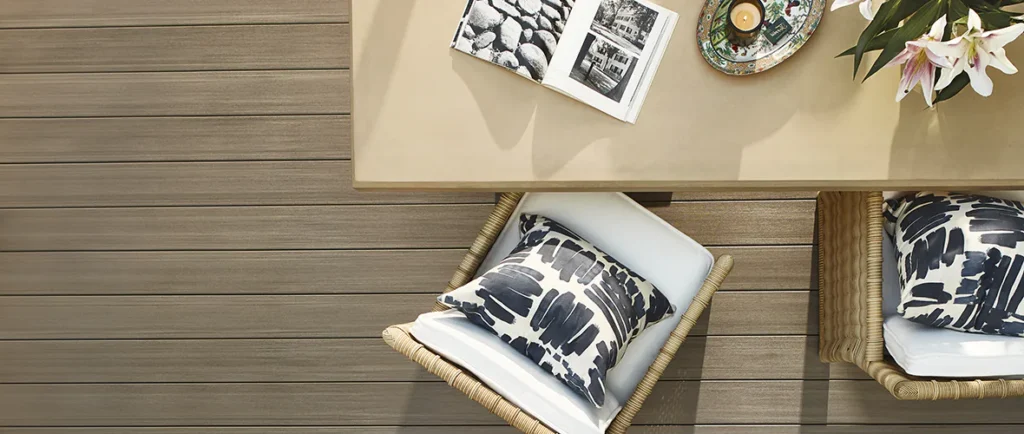You might think all deck boards are alike — but in reality, there are important distinctions to think about. Deck board thickness is one such distinction, and it can vary across composite decking products and different kinds of traditional wood decking.
There are four major reasons why the thickness of your deck boards will matter.
Why Deck Board Thickness Matters
- Material performance: More rigid materials can span longer distances without direct support, compared to less rigid materials of the same thickness.
- How far apart your deck joist spacing can be (deck board thickness and material performance play a role here).
- Type of build: Residential or commercial.
- Deck surface elevation.
Not sure how to pick the right deck board thickness for your project? Or, need to know about not only thickness, but board width as well? Keep reading — and don’t worry, we won’t lay it on thick.
Deck Board Thickness Overview
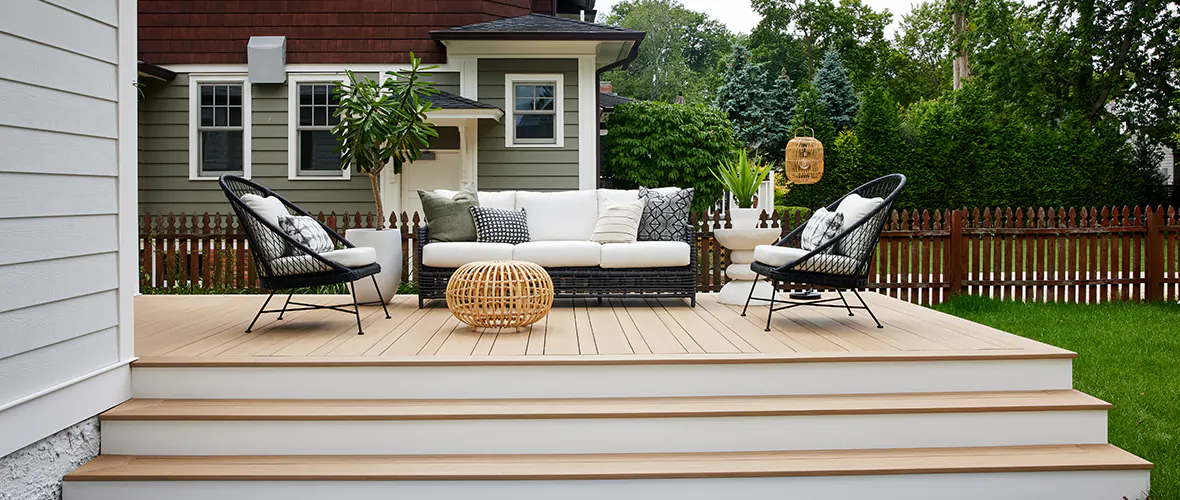
What size are deck boards, and why does it matter? To begin, it’s important to note the difference between standard deck board thickness and the heftier alternative, across materials types.
COMMON DECK BOARD THICKNESS (HEIGHT)
Standard = Approximately 1” thick
Thicker boards = Approximately 1.5” thick
NOTE: Standard boards are often called a 5/4 board when referring to traditional lumber, which means the actual thickness is typically somewhere between 1” and 1 ¼”. Thicker boards are often called a 2 x 6 when referring to traditional lumber, which means the actual thickness is somewhere between 1.2” and 1.5”.
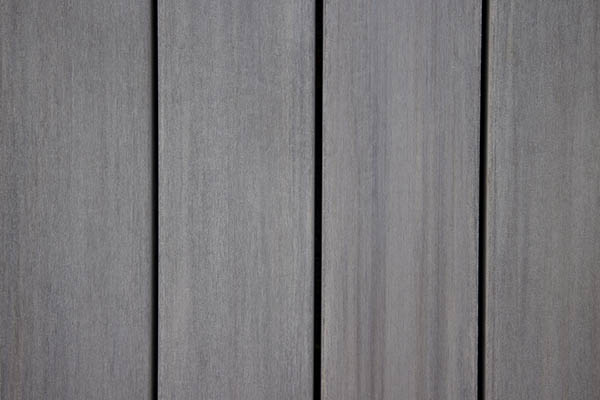
Thicker deck boards, like TimberTech Advanced PVC MAX boards (1.5” thick) can give you a sturdier underfoot feel when framed using standard 16” on center joist spacing.
Thicker boards (1.5″ thick) are sometimes required, depending on the joist span distance used in the framing of your deck (ex. if joists span greater than 16″ on center).
Let’s take a closer look at each of the reasons deck board thickness matters.
1.) Deck Board Thickness by Material
When it comes to traditional wood decking, the species (or type) of wood you build with impacts the overall performance and longevity of your deck. Why? Because different types of wood are stronger — or weaker — than others. Certain tropical hardwoods, like Ipe, for example, are hardier than common pressure-treated woods like cedar or pine.
So what is the typical thickness of wood deck boards? The standard thickness for most types of wood deck boards is 1″; however, for weaker woods, choosing a thicker board can give you a studier feel.
Most composite deck boards are also typically 1″ thick. But if you prefer or need – due to joist spacing – a thicker wood-alternative board, TimberTech Advanced PVC MAX deck boards are your best option.
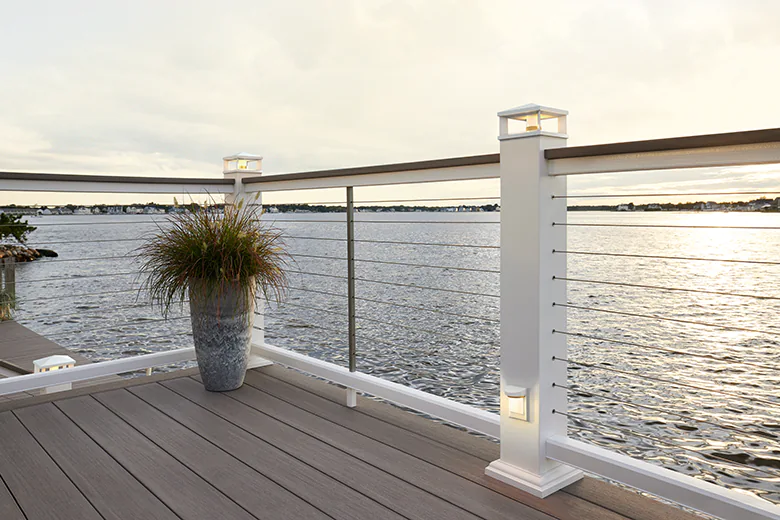
TimberTech® Advanced PVC MAX Decking
✓ 1.5” thick decking
✓ Made with the same innovative materials technology as our standard TimberTech Advanced PVC line
✓ Fully engineered polymers from core to cap.
✓ No organic material
✓ Unrivaled durability
TimberTech Advanced PVC MAX boards are an appealing non-wood decking option. They can span the wider joist spacing (more on this below) and are often used for boardwalks or docks.
2.) Deck Board Thickness by Joist Spacing
Deck joist spacing plays a big role in determining what material type and associated board thickness you need for your project. If you’re installing TimberTech Composite Decking and your project features spacing that’s greater than the conventional 16″ between the center of your deck joists, you’ll need to opt for thicker deck boards, like Advanced PVC MAX boards which can span up to 24″ between the center of your deck joists.
Thicker and/or more rigid deck boards may allow for more space between your deck joists — which means you’ll likely need fewer joists for your build.
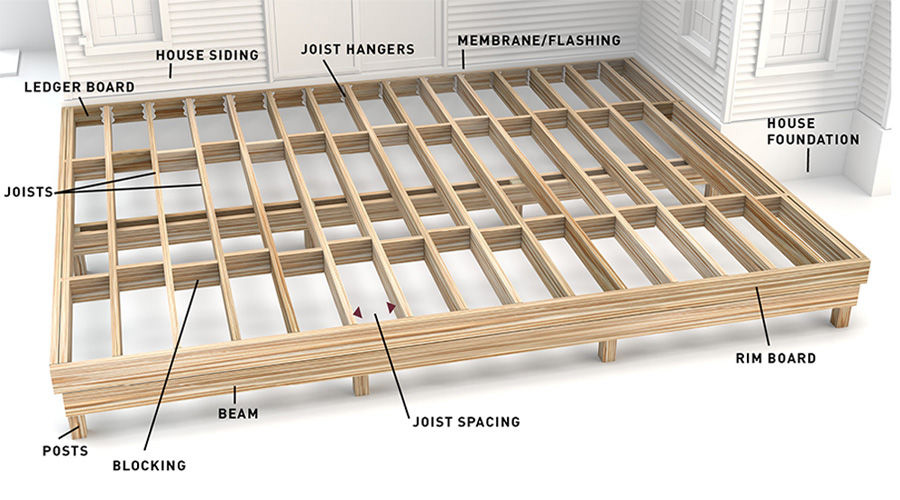
What Are Deck Joists?
Deck joists are the heart of your deck’s substructure. They support your deck boards, which fasten onto the joists from above. The greater the space between the joists, the more rigid your deck boards need to be.
What Is “On Center” for Deck Joist Spacing?
Your deck surface is made up of deck boards fastened to your joists at regular intervals, measured from the center of a given joist to the center of the adjacent joist. That measurement is called “on center.”
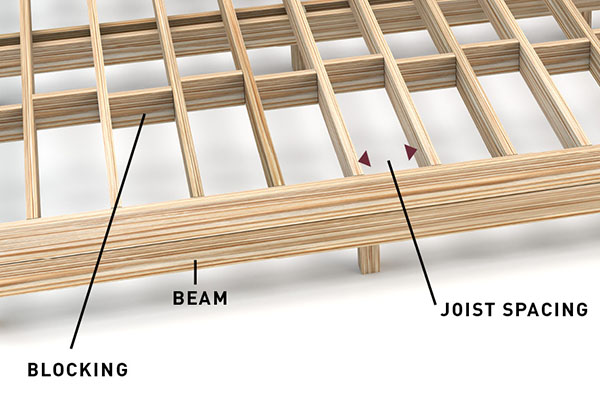
Standard Deck Joist Spacing
Standard deck joist spacing can depend on the application as well.
- 16″ on center: Standard for residential decking applications (though some rigid woods can span further). This is the maximum joist spacing for all standard thickness TimberTech deck boards. Though 12″ on center is recommended for a sturdier underfoot feel and required when boards are installed at an angle.
- 24″ on center: Sometimes used or required for commercial applications, such as docks and boardwalks; wider joist spacing requires greater deck board thickness, like our TimberTech MAX boards, or a more rigid material.
3.) Deck Board Thickness: Residential vs Commercial
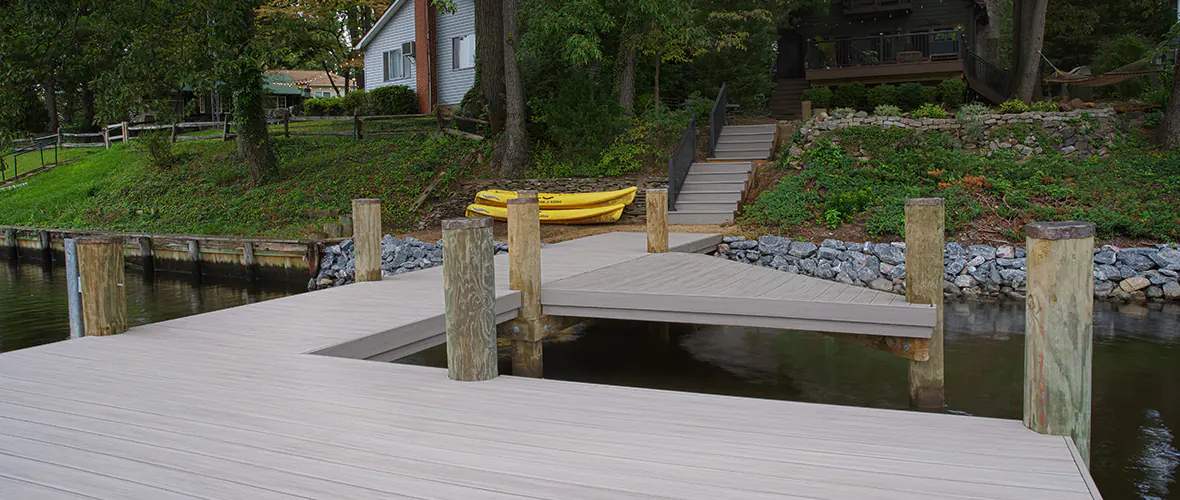
What size are deck boards for residential (like a composite deck in your backyard) vs commercial (like a dock, boardwalk, or a similarly high-traffic area) builds? It depends on the different building codes between the two.
When considering what size boards and joist spacing you need for your project, it’s important to consider the deck board’s span rating. Span rating refers to the maximum spacing a board can span without a support.
Maximum joist spacing for standard TimberTech Composite deck boards is 16″ on center for residential applications. TimberTech Advanced PVC MAX boards can span up to 24″ on center, making them ideal for docks and boardwalks.
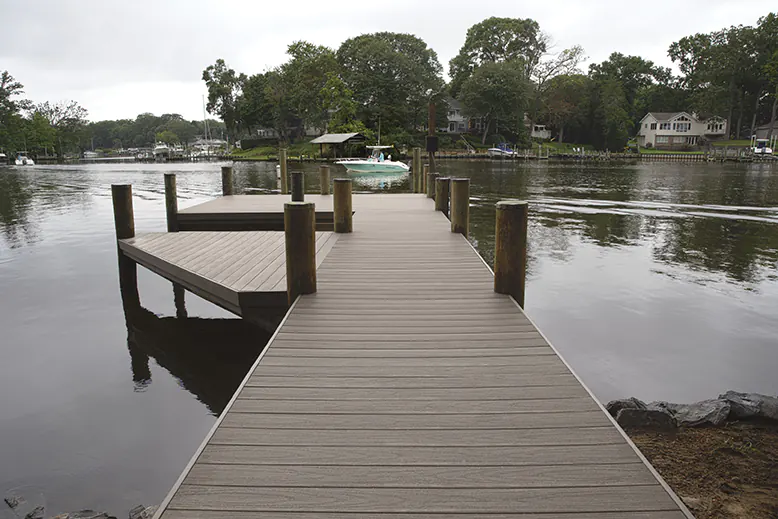
Get the MAX Benefit
Unlike traditional wood, TimberTech Advanced PVC MAX boards:
✓ Boast the thickness for less movement and serious durability.
✓ Provide a sturdy underfoot feel.
✓ Stay incredibly resistant to moisture and protect against mold, mildew, and rot thanks to their innovative capped polymer construction.
As always, when installing any decking products, you should closely review the appropriate decking installation guides and local building codes. Working with a TimberTech-registered contractor is always recommended.
4.) Deck Board Thickness: Deck Surface Elevation
The size of board you choose when you’re only replacing a few boards or a section of your deck is important because it can affect your deck surface elevation. If the thickness of your replacement boards is not the same as the existing boards, you’ll create an uneven surface, which could potentially be a dangerous tripping hazard.
The easiest way to avoid an uneven surface is to replace any damaged boards with the same material and dimensions as the existing boards.
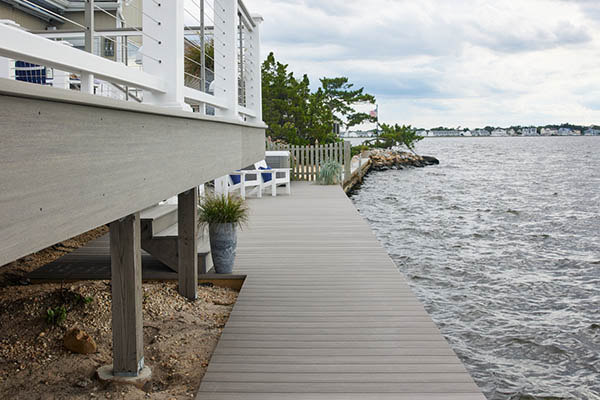
Ensure a Flat Surface With Different Materials
If you plan on upgrading your traditional wood surface in phases to a more durable engineered decking option, you can find similar board dimensions across wood and non-wood materials.
For instance, TimberTech Advanced PVC MAX boards are a similar thickness (1.5″) as traditional wood 2 x 6 boards, giving you a clean, flat surface between the old and new sections.
Explore Your TimberTech Advanced PVC MAX Board Options
The size of board you use isn’t the only consideration when choosing a material–you’ll also have to decide on aesthetics too.
Our TimberTech Advanced PVC and MAX boards aren’t just designed for optimal performance, they’re designed to look good too. Advanced PVC Collections offer a range of colors, finishes, and grain patterns that mimic the look of real wood. TimberTech MAX boards are offered in two contemporary gray options, with subtle nuances of color and natural-looking grain patterns that give each its own real-wood look.
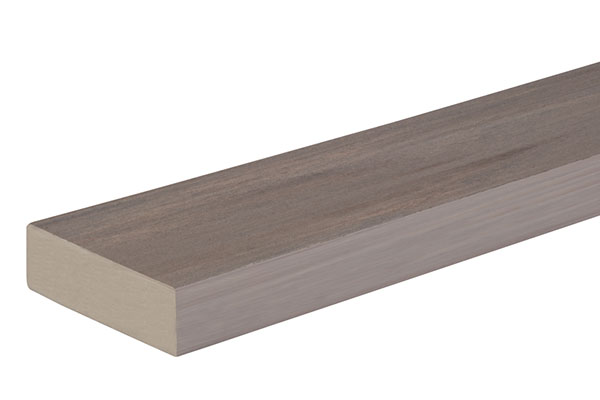
Coastline®
From the TimberTech Advanced PVC Vintage Collection®
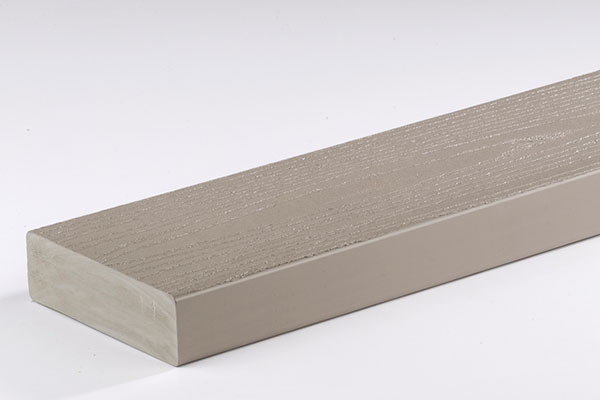
Slate Gray
From the TimberTech Advanced PVC Harvest Collection®
Also Interested in Deck Board Width?
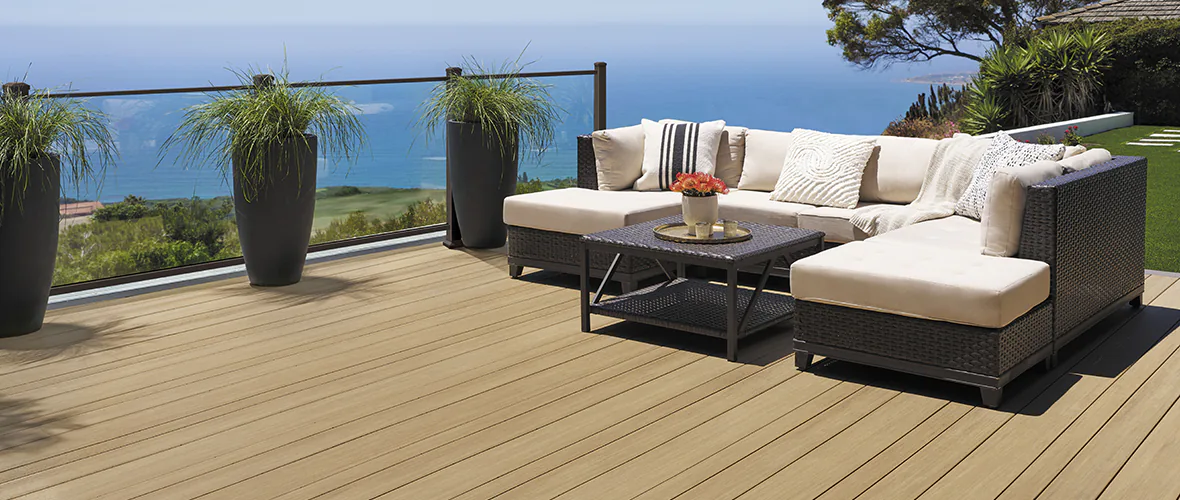
When you think “deck board thickness,” or ask yourself “what size are deck boards?”, you may also be curious about the width of the boards.
The TimberTech Advanced PVC Vintage Collection features innovative Multiwidth Decking, which offers boards in narrow (3.5”), standard (5.5”), and wide (7.25”) widths. The Advanced PVC Harvest Collection also offers standard (5.5″) and wide (7.25″) widths.
Choosing your deck board width is mostly an aesthetic choice. The deck board thickness of all TimberTech Multi-Width Decking is 1”–the same as our standard width boards, making them suitable for builds with standard 16” joist spacing, though 12″ joist spacing will provide a sturdier underfoot feel.
Why Choose Multi-Width Decking?
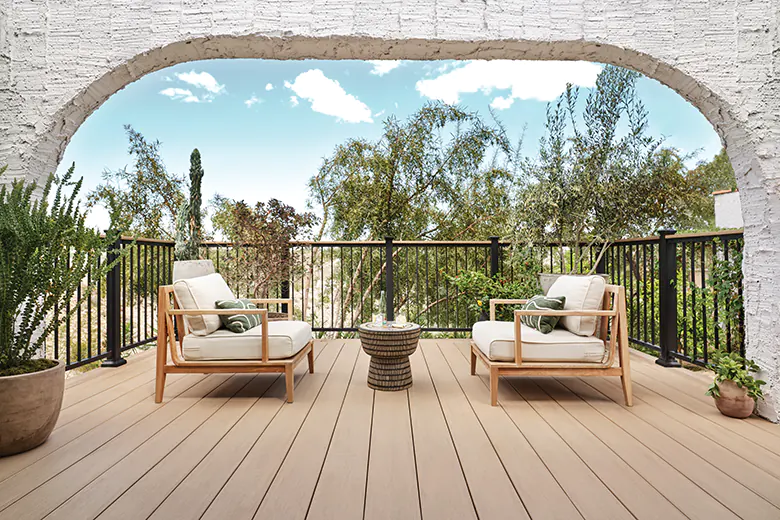
Add Visual Interest to Your Deck Design
Multi-width boards can give your deck a unique look — without straying from the conventional deck joist spacing of up to 16” on center.
Choose narrow boards for a traditional hardwood flooring look, or wide boards for a more contemporary feel. For a truly dynamic effect, mix and match all three widths in a repeating pattern of narrow, standard, and wide boards.
Get Creative With Deck Patterns
You can use Multi-Width Decking (either a single width or mixed) to create a variety of deck board patterns such as diagonal decking, a herringbone design, a tile pattern, and more.*
Repeat the pattern across the whole of your deck for a striking display, or inlay patterns into a section of your deck to create dynamic focal points.
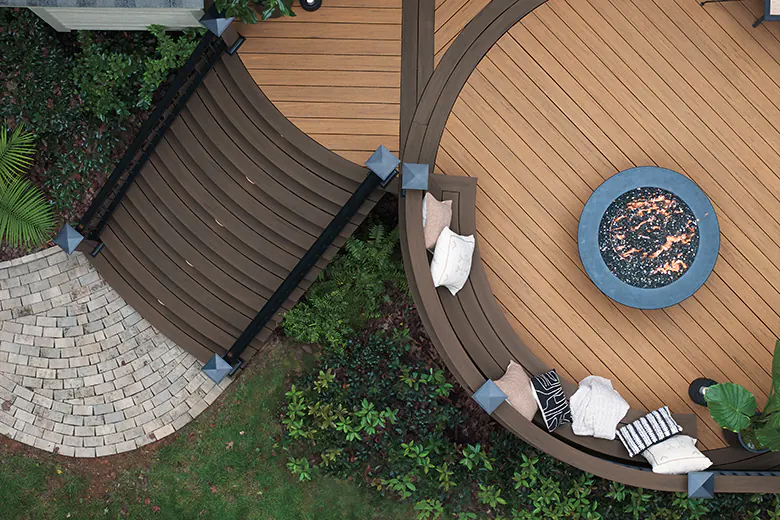
*NOTE: Deck board patterns require specific joist spacing and blocking, so it is recommended you work with a TimberTech-registered contractor for your patterned deck design.
Deck Board Thickness: See & Feel It for Yourself
Now that you’ve answered, “what size are deck boards?” and have a better understanding of deck board thickness — and width — you’re ready to start exploring all your decking options.
See and feel the strength and beauty of TimberTech decking yourself by ordering up to four free samples to help you choose the right deck board size and color for your deck, dock, or boardwalk.
